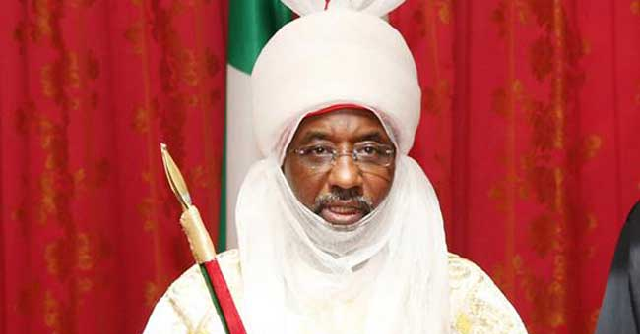The Federal Government responds to recent comments made by Muhammadu Sanusi II, the Emir of Kano and former Governor of the Central Bank of Nigeria (CBN), regarding the economic reforms introduced under President Bola Ahmed Tinubu’s administration.
Sanusi makes these remarks during the 21st memorial lecture for Chief Gani Fawehinmi in Lagos on Wednesday. He states that, due to personal grievances, he will not offer economic advice to the government. He explains, “I have decided not to speak about the economy or the reforms. If I explained, it would only benefit this government, and I don’t want to aid them. They’re my friends, but if they don’t behave like friends, I won’t behave like a friend. I watch them, but I’m not going to help.”
In response, Mohammed Idris, the Minister of Information and National Orientation, releases a statement on Thursday acknowledging Sanusi’s right to express his opinion. However, Idris expresses surprise that Sanusi, a leader from an institution known for its commitment to truth and fairness, would withhold support due to personal reasons.
Idris emphasizes, “Nigeria is at a critical juncture where bold and decisive actions are necessary to address long-standing economic challenges. This administration implements these reforms not because they are easy, but because they are vital for Nigeria’s long-term stability and growth—principles that Emir Sanusi has consistently advocated.”
Idris points out that the temporary difficulties Nigerians are facing as a result of the reforms are a “necessary consequence of decades of poor economic management.” He highlights key achievements, such as the unification of exchange rates, which has increased investor confidence and strengthened foreign reserves. The removal of the fuel subsidy, according to Idris, has also freed up significant resources for investment in crucial sectors like infrastructure, education, and healthcare.
He references projections from reputable institutions, including the World Bank, which indicate an upward trajectory for Nigeria’s GDP, signaling a path toward economic recovery.
Idris expresses disappointment that reforms, which are widely acknowledged as necessary by experts—including Sanusi—are now being criticized by him due to perceived shifts in loyalty. He urges the Emir to place the well-being of Nigerians above personal or partisan interests.
“Rebuilding Nigeria requires unity, focus, and sacrifice from all stakeholders. We urge leaders to avoid rhetoric that undermines public trust. What Nigeria needs now is collaboration, not distractions,” Idris states.
The Minister reaffirms the government’s commitment to fostering economic inclusivity, sustainability, and shared prosperity, underscoring the need for collective effort to overcome Nigeria’s challenges. He calls for constructive dialogue with all well-meaning stakeholders, while prioritizing the country’s long-term interests.
Muhammadu Sanusi II was appointed Governor of the Central Bank of Nigeria (CBN) on June 1, 2009, by then-President Umaru Musa Yar’Adua, amid the Great Recession. This crisis significantly affected Nigeria’s economy, causing the stock market to fall by nearly 70%. During this period, Sanusi played a key role in stabilizing the country’s banking sector, overseeing the rescue of troubled banks with over ₦600 billion in public funds. His actions included dismissing and imprisoning bank executives responsible for mismanaging funds and addressing financial misconduct in the banking industry.













